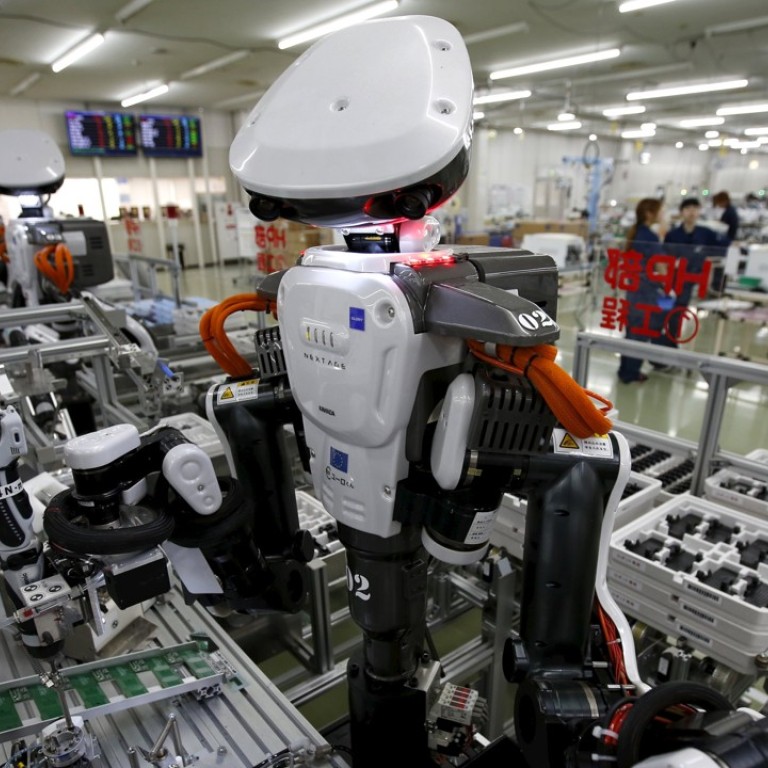
Japan, unlike the West, is not scared of robots stealing jobs, deputy leader says
Japan’s labour force does not mind robots in factories because they’re seen as a source of help, Japanese Deputy Prime Minister and Minister of Finance Taro Aso says
By Nyshka Chandran
Unlike many of their Western counterparts, Japanese workers aren’t afraid of robots stealing their jobs, a top-ranking official from the country says.
Japan’s labour force do not mind robots in factories because they’re seen as a source of help, Japanese Deputy Prime Minister and Minister of Finance Taro Aso said in a panel discussion at the Asian Development Bank’s annual gathering in Manila.
“The Western way of thinking is ‘robots will steal my job,’ but in Japan, robots will reduce the ordinary man’s load,” he continued, referencing famous Japanese comics such as “Astro Boy” and “Doraemon” in which robots are always helping people.
Japan, the world’s third-largest economy, is home to a rapidly shrinking population that’s produced an extremely tight labour market.
Last year, citizens aged 65 and above accounted for nearly 28 per cent of the population, according to government statistics, with the number of people aged 90 or older topping the 2 million mark for the first time.
Aso, who served as prime minister from 2008 to 2009, acknowledged Friday the impact of those demographic dynamics on his country’s economy and took himself as an example: “I’m 77 years old and still working,” he said with a smile.
“Technology can create value-added jobs but it can also lead to wider inequality,” he warned.
“To minimise those social costs, it’s important to enhance human capital,” he continued, citing educational incentives for lower-income families as one potential prospect.

